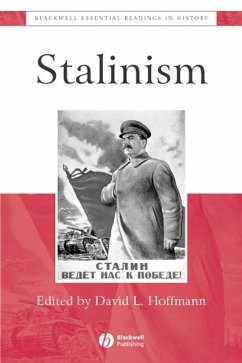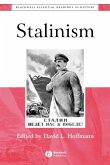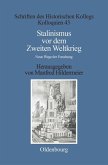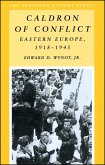This book comprises twelve essays on Stalinism by leading international historians, whose work presents a range of interpretations regarding Stalinism's origins and consequences. In particular the essays address the following questions: * why did the October Revolution of 1917 result not in a communist utopia but in the Stalinist dictatorship, with prison camps, bloody purges, and unprecedented state repression? * was Stalin personally to blame or were these events the result of social forces, socialist ideology, or the international threat? * how did Stalinism affect women and gender roles? * what was Stalinist policy toward ethnic and national minorities? * what impact did the Second World War have on Soviet society? The chapters include work by both eminent historians and younger scholars who have conducted research in the newly-opened Russian archives. These perspectives are brought together by the editor who provides a contextualizing chapter and introductions to the debates. The book provides students and teachers with a valuable overview of the scholarship on Stalinism and an understanding of the debates that have shaped the field of Soviet history.
Hinweis: Dieser Artikel kann nur an eine deutsche Lieferadresse ausgeliefert werden.
Hinweis: Dieser Artikel kann nur an eine deutsche Lieferadresse ausgeliefert werden.
"The often contentious scholarly arguments about the character ofStalinism are fully represented in this important volume assembledand introduced by Ohio State's David Hoffmann. Perfect forthe classroom, the essays in this book contain some of the bestrecent research and thinking about Stalin's key role inRussian History."Norman Naimark, Stanford University
"This is a collection of enormous value to anyone seeking tounderstand the causes and consequences of Stalin's despotictransformation of Soviet society. It brings together some of thefinest historical writing, including more recent scholarship, toreflect the diversity of interpretation of this grim but vitallyimportant episode in twentieth-century history." Steve Smith,University of Essex
"Soviet historical studies have been reanimated ... Students andteachers oof this period confront a proliferation of authoritiesand viewpoints. The strength of David Hoffmann's collection is inits attempt to replect this variety of views." Continuity andChange
"Brilliant and illuminating analyses. Hoffman provides a rangeof first-rate critiques of the regime from various angles."Journal of Genocide Research
"This is a collection of enormous value to anyone seeking tounderstand the causes and consequences of Stalin's despotictransformation of Soviet society. It brings together some of thefinest historical writing, including more recent scholarship, toreflect the diversity of interpretation of this grim but vitallyimportant episode in twentieth-century history." Steve Smith,University of Essex
"Soviet historical studies have been reanimated ... Students andteachers oof this period confront a proliferation of authoritiesand viewpoints. The strength of David Hoffmann's collection is inits attempt to replect this variety of views." Continuity andChange
"Brilliant and illuminating analyses. Hoffman provides a rangeof first-rate critiques of the regime from various angles."Journal of Genocide Research








